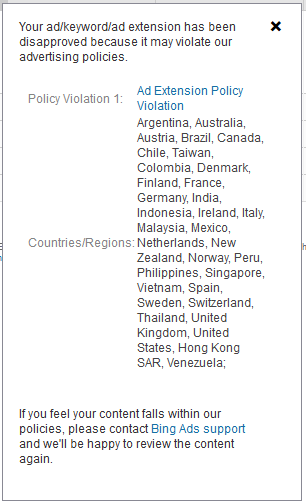We recently tested advertising on the question-and-answer website Quora to try to show ads on relevant content there. We wanted to share our results for anyone considering whether they should give it a try.
Who Knows What is Going on With Targeting
If you want to show ads on certain content on Quora, they have several options for that. Though, their own data suggests something is very amiss. Let’s look at an example of that.
One option is to target keywords, which “Show ads near questions containing or excluding keywords.” If you set it so that ads would show up for the keyword “drupal” in the United States, their system told us that there were 1,000–2,000 p:
 So a decent number of potential times to show ads.
So a decent number of potential times to show ads.
Another option is topics, which “Show ads relevant to specific Quora topics.” When searching for topics related to Drupal, the first one listed is “Drupal (Operating System)”. Drupal is a content management system, not an operating system:
 Selecting to show for that in the United States, their system told us there were <100 p
Selecting to show for that in the United States, their system told us there were <100 p
 If you instead select “Drupal 8 CMS,” the number increases to 20,000–25,000 p
If you instead select “Drupal 8 CMS,” the number increases to 20,000–25,000 p
 That doesn’t seem to make any sense, as that shouldn’t be significantly higher than when showing ads with the “drupal” keyword, as anything relevant to that topic should use that keyword.
That doesn’t seem to make any sense, as that shouldn’t be significantly higher than when showing ads with the “drupal” keyword, as anything relevant to that topic should use that keyword.
If you instead select “Drupal 7” the number increases to 30,000–35,000 p
 Again, that doesn’t make any sense.
Again, that doesn’t make any sense.
Quora doesn’t provide any addtional information on what these topics entail to try to better understand what is going on there.
Poor Results for Keyword Targeting
We decided to go with keyword targeting, because that seems less likely to show up for a lot of irrelevant content. We started with low bids. We didn’t see many impressions or any clicks. We started raising bids. The number of impressions didn’t increase much, but we started getting a lot of recorded clicks for the limited amount of impressions.
We didn’t have many of those clicks show up in our analytics. Most of them that were showing were coming from VPN services. These VPN visitors frequently clicked on ads multiple times in short periods of time. In one case, there were five clicks from one VPN user in less than a minute and a half. Considering that we were only targeting certain geographic areas, we would want to exclude VPN users because we have no idea if they are in an area we could reasonably serve customers. Considering the likelihood of fraudulent clicks through those, we would want to exclude them anyway, but Quora doesn’t have an option for that.
There is also a lack of visibility as to what you are even showing up on. The number of impressions we got with different keywords made it seem like they might be showing up on a lot of things they shouldn’t, but we have no way of knowing.
Overall, we didn’t get even close to getting any business.
Almost No Impressions With Question Targeting
Another option we are trying is targeting specific questions relevant to what we were advertising. The interface for selecting those isn’t great. But the larger problem is that with this option, we found we had only single digit impressions in a month. So ther was very little chance of that drawing in business.
Your Result May Be Different
It might be that what we are targeting is an area where Quora produces bad results and other areas produce better results. It also might be that other options they have for targeting their audience produce better results for you.
But we would say that if you do decide to try it you should go in to it knowing that results might be bad and might be wasting your time/money.
If anyone else has experience with advertising with them, good or bad, leave a comment on your results below.








